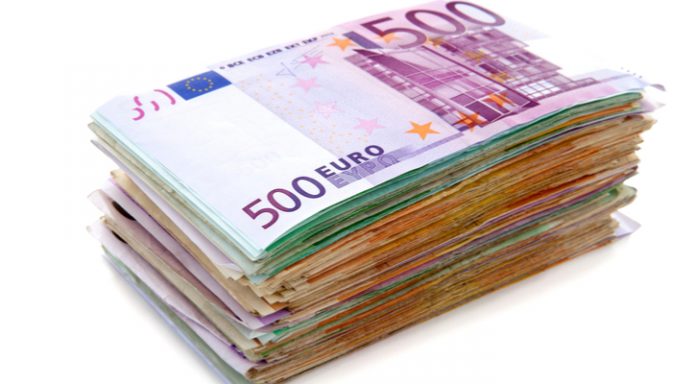British politics continued to weigh on the pound in the previous session, pulling the pound lower versus the euro. The pound euro exchange rate dipped to a low of €1.1285 in subdued trading.
| What do these figures mean? |
|---|
|
When measuring the value of a pair of currencies, one set equals 1 unit and the other shows the current equivalent. As the market moves, the amount will vary from minute to minute. For example, it could be written: 1 GBP = 1.13990 EUR Here, £1 is equivalent to approximately €1.14. This specifically measures the pound’s worth against the euro. If the euro amount increases in this pairing, it’s positive for the pound. Or, if you were looking at it the other way around: 1 EUR = 0.87271 GBP In this example, €1 is equivalent to approximately £0.87. This measures the euro’s worth versus the British pound. If the sterling number gets larger, it’s good news for the euro. |
UK Prime Minister Theresa May has managed to defiantly hold onto her position leading the country, despite several high-profile resignations from her party. The UK Conservative Party remains fiercely split over the direction of Brexit. Theresa May forcing a softer Brexit onto her party has infuriated the hard-line Brexit supporters.
Led by Jacob Rees Mogg, the hard line Brexiteer rebels intend to vote through a series of amendments on the Brexit trade bill which will force Theresa May to scrap her Brexit plan. So whilst Theresa May is hanging on to power, whether she gets her way with Brexit is still looking doubtful. The vote next week could still see Theresa May face a vote of no confidence and ousted from power. The political risk hanging over the UK is preventing the pound from moving higher.
| How does political risk have impact on a currency? |
|---|
| Political risk drags on the confidence of consumers and businesses alike, which means both corporations and regular households are then less inclined to spend money. The drop in spending, in turn, slows the economy. Foreign investors prefer to invest their money in politically stable countries as well as those with strong economies. Signs that a country is politically or economically less stable will result in foreign investors pulling their money out of the country. This means selling out of the local currency, which then increases its supply and, in turn, devalues the money. |
Today, in the absence of any further political developments investors will look towards the Bank of England credit conditions and bank liabilities report for further assessment over the health of the UK economy. With just three weeks to go until the next BoE monetary policy decision, investors remain unsure whether the BoE will hike or not. Any positive data supporting a hike from the BoE is likely to boost the pound.
| Why do raised interest rates boost a currency’s value? |
|---|
| Interest rates are key to understanding exchange rate movements. Those who have large sums of money to invest want the highest return on their investments. Higher interest rate environments tend to offer higher yields. So, if the interest rate or at least the interest rate expectation of a country is relatively higher compared to another, then it attracts more foreign capital investment. Large corporations and investors need local currency to invest. More local currency used then boosts the demand of that currency, pushing the value higher. |
Trade War Pulls Euro Lower
Wednesday was a quiet day as far as the eurozone economic calendar was concerned and the euro fell. However, this was more to do with another trade tariff threat from the White House. As trade war fears increase, so does the dollar. The euro often trades inversely to the dollar, so as the dollar rallied, the euro fell.
Today investors will be looking towards the release of the minutes from the European Central Bank (ECB) policy meeting. At the meeting the ECB decided how and when to end the bond buying programme; with the conclusion set for the end of the year. However, investors were left slightly surprised by path of expected rate hikes pointing to after the summer of 2019, later than what some had expected. Investors will look carefully to the discussions which occurred. Any change of tone could move the euro.
This publication is provided for general information purposes only and is not intended to cover every aspect of the topics with which it deals. It is not intended to amount to advice on which you should rely. You must obtain professional or specialist advice before taking, or refraining from, any action on the basis of the content in this publication. The information in this publication does not constitute legal, tax or other professional advice from TransferWise Inc., Currency Live or its affiliates. Prior results do not guarantee a similar outcome. We make no representations, warranties or guarantees, whether express or implied, that the content in the publication is accurate, complete or up to date. Consult our risk warning page for more details.
This article was initially published on TransferWise.com from the same author. The content at Currency Live is the sole opinion of the authors and in no way reflects the views of TransferWise Inc.





